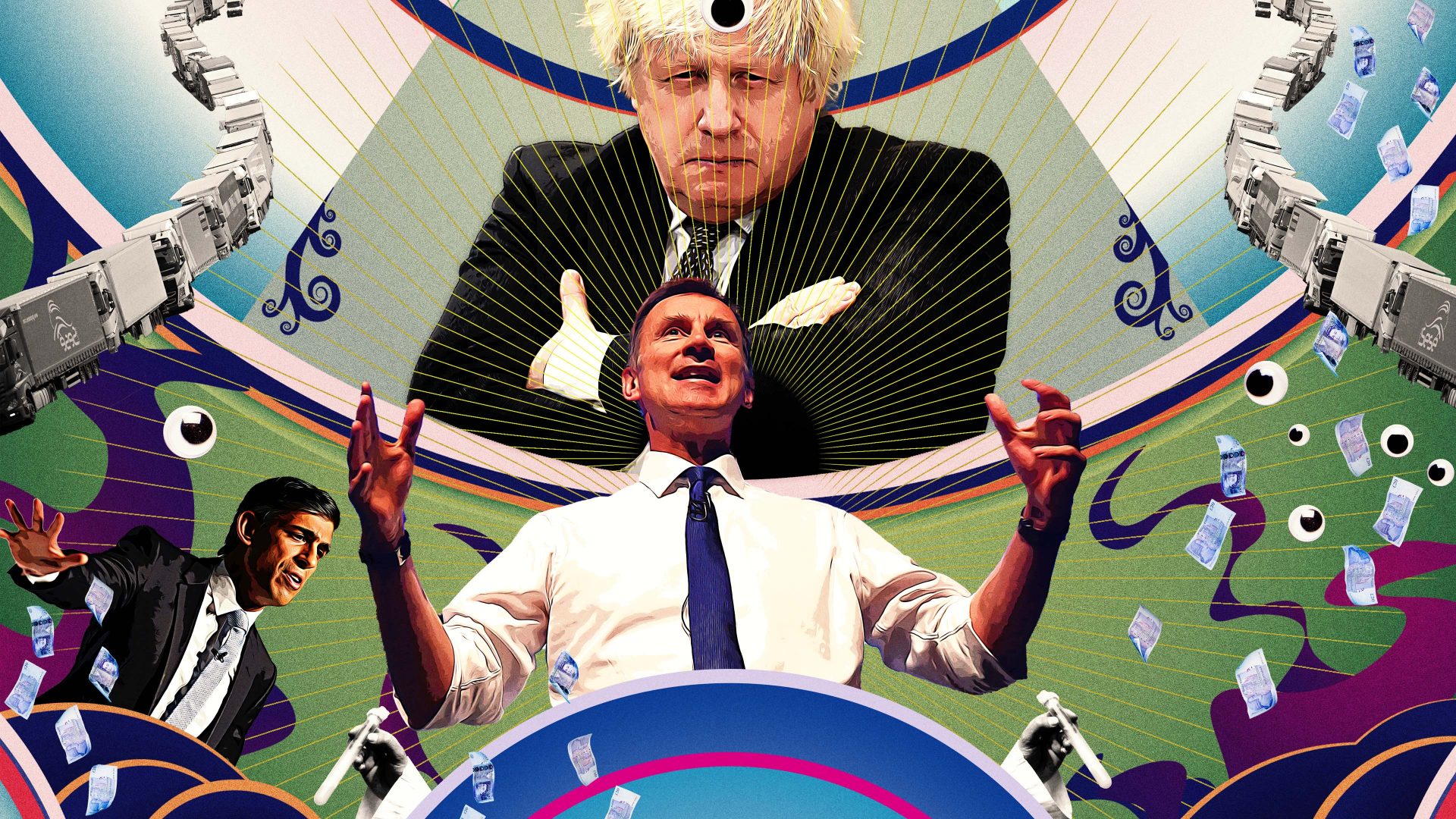I followed the Gary Lineker debacle minute by minute: mid-Friday afternoon, the BBC kicked him off air; by twilight most of its key football were in “I’m Spartacus” mode; by Saturday morning the Beeb was embroiled in a 24-hour rolling clusterfuck. And by Monday morning it was over. The national broadcaster, its board stuffed with Tory culture warriors, had caved in to the liberal majority.
The event provides an object lesson in how to take a stand for progressive principles. The BBC is an avowedly anti-racist brand – filling its output in almost every genre with ethnically diverse people. The English Premier League starts every game with a denunciation against racism. Lineker has a history of anti-racist statements over treatment of refugees.
So he wasn’t exactly going out on a limb when he described the Tories’ new asylum policy as racist, whatever you think of the comparison with the 1930s.
Sure, there are some football fans who heckle the Kick It Out messaging at games; and who booed when England took the knee. But that’s the point. Conservatism’s decision to wage a culture war has left no middle ground; no technocratic centrist position for the BBC to default to. If it deemed Linker’s words unacceptable, it risked being identified with the very sentiments that have sparked small fascist demos outside migrant hotels.
So Lineker’s tweet followed one of the first rules of warfare. Attack only when the conditions are favourable. He also employed a second: economy of force: “Good heavens, this is beyond awful” is not exactly the Gettysburg address. His studied silences during the BBC’s weekend of agony piled the pressure on.
But it was a third aspect that proved decisive. Lineker had correctly judged the mood – of his potential supporters, of politicians and of the wider public. Large parts of progressive Britain were dismayed at Labour’s initial response to the “Illegal Immigration Bill” – that it wouldn’t work, rather than its cruelty.
But the public were ahead of them. They could see the unfairness and hypocrisy behind the BBC’s response. This, plus the obviously conflicted nature of the BBC’s Tory board members brought Labour politicians onside on the wider moral issue: we are an anti-racist country, this is not who we are and Lineker spoke for all of us.
With the Tories bereft of answers, and determined to use culture war alone to claw their way back into electoral contention, what are the wider lessons of Lineker’s decision to take a stand?
First, pick your battles. If you survey the output of right-wing culture warriors, it is a constant, daily, harassment operation whose aim is to provoke you to think about cultural dissonance and react – either by lashing out, or by letting your subconscious accept, reluctantly, that “maybe they’ve got a point”.
In conflict terms, all their blog posts, tweets and interminable YouTube videos are minor tactical diversions, designed to distract you, sap your strength and pull the political conflict on to terrain of their choosing.
In general, the left-wing political truism “don’t fight the culture war” is correct. It’s designed to divert us from the big, material issues like pay, inflation and housing costs that could unite people across the socio-cultural divides. But when you do, assemble a lot of people behind you and go in hard.
Next, establish the right to lead. When I was an activist in the 1980s, among veteran shop stewards from Britain’s steelworks, factories and engineering plants, what struck me was the moral source of their authority. It was a point of pride for them to be ranked among the “best workers”: they wanted nothing to do with malingerers at work. They put themselves at the heart of everything in the workplace – from strikes to card games in tea breaks to the works outing.
And this was not simply out of the goodness of their hearts. They understood leadership is something you have to earn through granular, everyday solidarity, of the kind that some of today’s keyboard warriors never bother to try.
Lineker’s moral authority was established by his yellow card-free career, by moments like his response to Paul Gascoigne’s on-pitch tears in 1990, and by 1001 drily humorous comments on the telly of a Saturday night.
Done right, acts of resistance also produce instant irresolution on the authoritarian side. The tank man at Tiananmen Square had no obvious allies on the street: but for the few moments we know about, he clearly had sympathy among the tank crew that refused to run him over.
Likewise, Lineker activated a mass of discontent within the ranks of BBC journalists, who are clearly sick of the top-down pressure over impartiality, alongside spending cuts, emanating from a Tory-appointed board who believe they have to promote understanding of “non-metropolitan attitudes” among their staff.
Finally, successful lone rebels always have an innate sense of the zeitgeist, and an ability to summarise it in words and actions. My old comrades among the shop stewards movement had a saying: “one Bolshevik is worth 20 Mensheviks”. They could never quite explain what made that one Bolshevik so unique, but Stephen R Covey’s bestseller The Seven Habits of Highly Effective People probably sums it up. They were independent, proactive, morally consistent people.
The point behind Lineker’s successful defiance of the Beeb is: you don’t always have to take a stand. In our world, characterised by massive inequality and corruption, sometimes it’s enough to nurture burning resentment, or hope, or moral principles – and to share them in private with other like-minded people.
Sooner or later, one person will draw a line, and the strength of resistance will be tested. The old anti-capitalist movement used to urge followers to “find each other”. That’s what Lineker’s decision to stand up and be counted did – on football terraces and in pubs across Britain.




